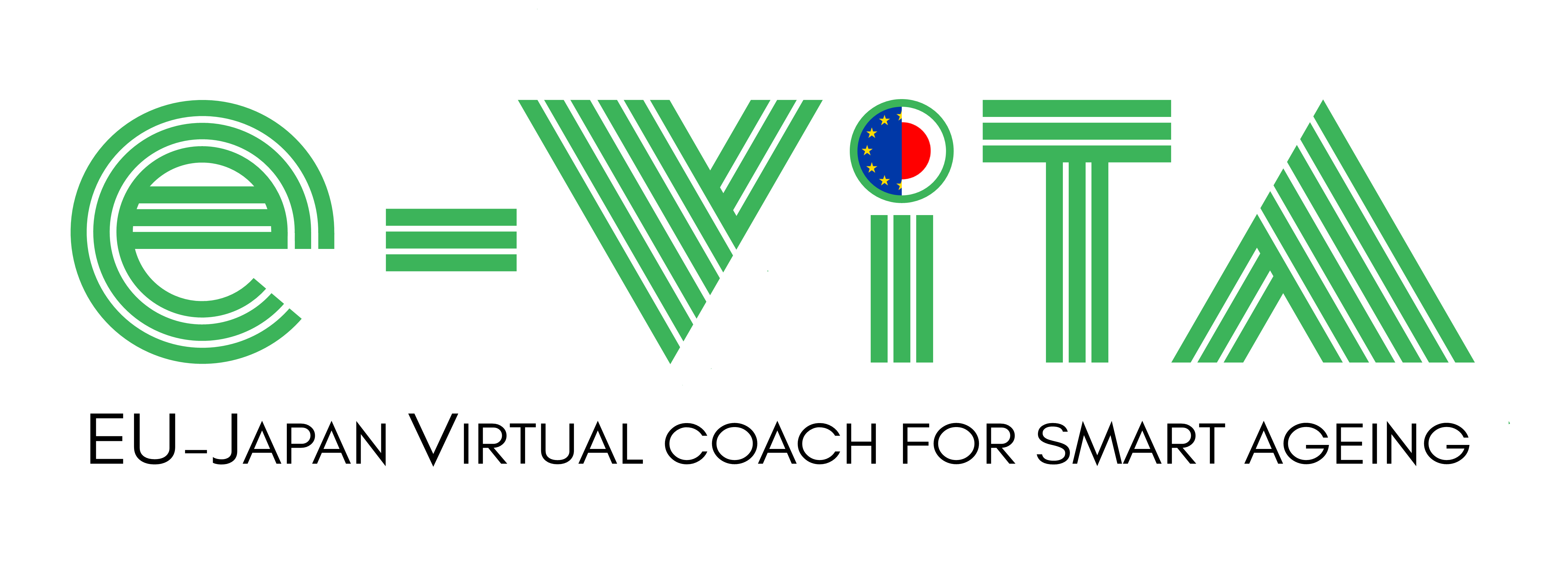Virtual Coach for Smart Ageing
During the last century, life expectancy at birth has grown rapidly thanks to improved living standards, better healthcare, medical progress and increased awareness of health issues. And this trend continue. Europe and Japon have today the highest proportion of older adults in the world. This context requires the conception of new preventive, innovative and tailored solutions to support care and wellbeing of older adults.
A solution is presented here : E-vita project and its research will combine the socio-technology excellence „Made in Europe“ with the excellence of technology „Made in Japan“ to create the “EU-Japan Virtual Coach for Smart Ageing“.
The University of Siegen, the project coordinator, together with 11 European and 11 Japanese partners, will develop a virtual coach for smart ageing at home. The e-VITA project objective is creating an intelligent assistant that older people can use individually at home. This virtual coach will be tailored to their own living environment and respond to their individual needs and wishes in in the fields of mobility, social interaction, leisure, cognition, physical activity, mood and spirituality
“Our goal is to empower older people to remain independent and active, manage their daily activities and improve their well-being,” explains Professor Dr. Marc Hassenzahl, Dean of Faculty III at the University of Siegen.
The task of the Siegen researchers will be to design a trustworthy assistant which will have the following functions:
- the support system can be linked to the social services and activities.
- the virtual coach will respond to the older adult via natural and smooth verbal interaction
- the system will use data from various sensors as smart household appliances and can also connect health-related devices.
Based on all this information, the coach will provide personalized recommendations in the different languages of the participating countries which could increase wellbeing and support older people in remaining active in their living environment.
The specific functions and tasks that the coach will assume and the form it will take will be determined together with the older adults during the whole project duration : “It is crucial for the project that the users accept the technologies. We can only be successful in the project if we put the users at the centre of the design and development process,” says Elisa Irlandese, project officer at the European Commission.
A digital Kick-off-Meeting brought together all partners as well as representatives of the EU Commission and the Japanese Ministry of Science in January 2021 to officialy launch the three-year research project. e-VITA is funded by the EU’s Horizon 2020 framework program for research and innovation and by public funding from Japan with a total of four million euros in the EU plus four million euros in Japan.
“The project has received funding from the European Union H2020 Programme under grant agreement n° 101016453. The Japanese consortium received funding by the Japanese Ministry of Internal Affairs and Communication (MIC).”







